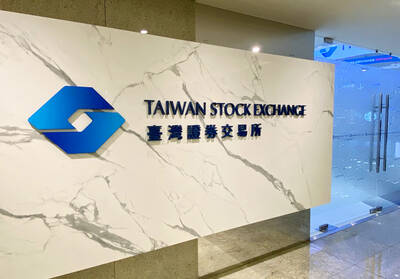China’s Beijing Bytedance Technology Co (北京字節跳動科技) on Wednesday announced that it is shuttering the popular Musical.ly video app it acquired for nearly US$1 billion in December last year and is to move users to a revamped version of its homegrown competitor, TikTok.
Musical.ly, released in 2014, and TikTok, launched in 2016, both enable users to create and share short singing and dancing videos that are set to well-known songs, with numerous special-effects filters.
Although both apps were developed in China, Musical.ly became a sensation among teenagers in the Americas and Europe, while TikTok took off among young people in Asia.
“Musical.ly and TikTok currently operate in complementary geographies without much overlap and as both platforms continue to grow rapidly now is the time to bring them together,” Stefan Heinrich, head of global marketing at TikTok, said in an e-mail.
He said they are embracing the TikTok brand because it “better reflects the breadth of content created on our platform that extends beyond music to comedy, performance art and more.”
“Supporting one platform will allow us to expand our on-the-ground presence more quickly and easily — building local teams to support each market,” he said.
Musical.ly recently reached 100 million monthly active users, the company said.
TikTok said that in June it had 500 million monthly active users.
“Combining Musical.ly and TikTok is a natural fit given the shared mission of both experiences — to create a community where everyone can be a creator,” Alex Zhu (朱駿), cofounder of musical.ly and senior vice president of TikTok, said in a press release.
The new app is to let users access content from new countries and viewing options that were only available on one of the apps, Bytedance said in the release.
The company said existing users’ accounts and content would be moved “to the new TikTok app,” which was expected to be available in app stores late on Wednesday.

Taiwan Semiconductor Manufacturing Co (TSMC, 台積電) secured a record 70.2 percent share of the global foundry business in the second quarter, up from 67.6 percent the previous quarter, and continued widening its lead over second-placed Samsung Electronics Co, TrendForce Corp (集邦科技) said on Monday. TSMC posted US$30.24 billion in sales in the April-to-June period, up 18.5 percent from the previous quarter, driven by major smartphone customers entering their ramp-up cycle and robust demand for artificial intelligence chips, laptops and PCs, which boosted wafer shipments and average selling prices, TrendForce said in a report. Samsung’s sales also grew in the second quarter, up

LIMITED IMPACT: Investor confidence was likely sustained by its relatively small exposure to the Chinese market, as only less advanced chips are made in Nanjing Taiwan Semiconductor Manufacturing Co (TSMC, 台積電) saw its stock price close steady yesterday in a sign that the loss of the validated end user (VEU) status for its Nanjing, China, fab should have a mild impact on the world’s biggest contract chipmaker financially and technologically. Media reports about the waiver loss sent TSMC down 1.29 percent during the early trading session yesterday, but the stock soon regained strength and ended at NT$1,160, unchanged from Tuesday. Investors’ confidence in TSMC was likely built on its relatively small exposure to the Chinese market, as Chinese customers contributed about 9 percent to TSMC’s revenue last

Taiwan and Japan will kick off a series of cross border listings of exchange-traded funds (ETFs) this month, a milestone for the internationalization of the local ETF market, the Taiwan Stock Exchange (TWSE) said Wednesday. In a statement, the TWSE said the cross border ETF listings between Taiwan and Japan are expected to boost the local capital market’s visibility internationally and serve as a key for Taiwan becoming an asset management hub in the region. An ETF, a pooled investment security that is traded like an individual stock, can be tracked from the price of a single stock to a large and

Despite global geopolitical uncertainties and macroeconomic volatility, DBS Bank Taiwan (星展台灣) yesterday reported that its first-half revenue rose 10 percent year-on-year to a record NT$16.5 billion (US$537.8 million), while net profit surged 65 percent to an unprecedented NT$4.4 billion. The nation’s largest foreign bank made the announcement on the second anniversary of its integration with Citibank Taiwan Ltd’s (花旗台灣) consumer banking business. “Taiwan is a key market for DBS. Over the years, we have consistently demonstrated our commitment to deepening our presence in Taiwan, not only via continued investment to support franchise growth, but also through a series of bolt-on acquisitions,” DBS